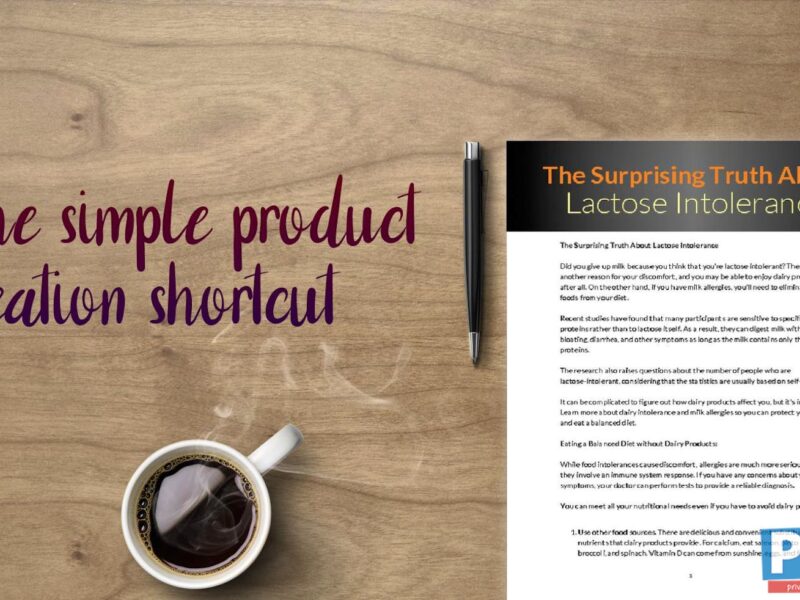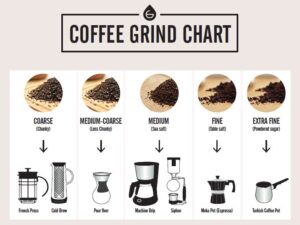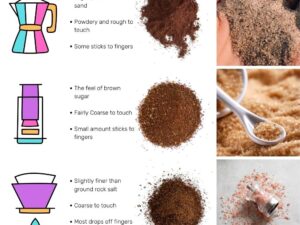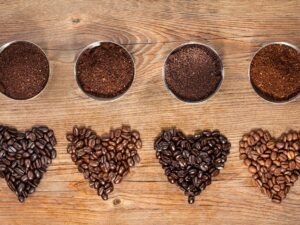It takes about 10 to 20 minutes for coffee to kick in. You might start to feel more alert and awake within this time frame.
But why does coffee work this way, and what happens in your body? Coffee is a popular drink for many people around the world. Its main ingredient, caffeine, is what gives you that energy boost. When you drink coffee, caffeine enters your bloodstream and travels to your brain.
Here, it blocks a chemical called adenosine, which makes you feel sleepy. This is why coffee helps you feel more awake and focused. But remember, different factors like your metabolism and how much coffee you drink can change how quickly you feel the effects. So, let’s dive deeper into what influences how fast coffee kicks in.
Factors Affecting Caffeine Absorption
Enjoying a cup of coffee is a daily ritual for many. But how long does it take for coffee to kick in? The answer depends on several factors affecting caffeine absorption. Understanding these factors can help you get the most out of your coffee experience.
Metabolism Rate
Your metabolism plays a big role in how quickly caffeine affects you. People with a fast metabolism process caffeine quicker. This means the effects can be felt sooner, often within 15-30 minutes. On the other hand, those with a slower metabolism may need to wait up to an hour to feel the full effects of caffeine.
Several elements influence your metabolism rate:
- Genetics: Your genetic makeup can dictate how fast your body processes caffeine.
- Age: Younger individuals generally have faster metabolisms.
- Activity Level: Regular exercise can boost your metabolic rate.
- Health Conditions: Certain medical conditions can slow down metabolism.
Here’s a quick comparison:
| Factor | Effect on Metabolism |
|---|---|
| Genetics | Can speed up or slow down caffeine processing |
| Age | Younger individuals process caffeine faster |
| Activity Level | Increased activity boosts metabolism |
| Health Conditions | Can slow down caffeine processing |
Food Intake
What you eat before or with your coffee affects how quickly you feel its effects. Consuming coffee on an empty stomach leads to faster absorption. This is because there is nothing to slow down the caffeine entering your bloodstream.
Conversely, having food in your stomach can slow down the absorption. This is due to the fact that the body is busy digesting food, and this process can take priority over absorbing caffeine.
Consider these points about food intake:
- Empty Stomach: Faster absorption, quicker effects.
- Heavy Meal: Slower absorption, delayed effects.
- Type of Food: High-fat meals slow down absorption more than high-carb meals.
Here’s a quick comparison:
| Food Intake | Effect on Caffeine Absorption |
|---|---|
| Empty Stomach | Quicker absorption |
| Heavy Meal | Slower absorption |
| High-Fat Meal | Slows absorption the most |
| High-Carb Meal | Slows absorption, but less than fat |

Credit: cafely.com
Caffeine’s Journey In The Body
Coffee is a beloved morning ritual for many. But how long does it take for coffee to kick in? Understanding caffeine’s journey in the body helps answer this question. Once you sip your favorite brew, caffeine begins its fascinating trip through your system. Let’s explore the stages of this journey, from consumption to digestion.
Consumption
The journey starts with the act of drinking coffee. When you take that first sip, caffeine enters your mouth. The absorption process begins almost immediately. Here are some key points about consumption:
- Absorption begins in the mouth: A small amount of caffeine is absorbed through the mucous membranes.
- Swallowing: The majority travels down your throat to your stomach.
- Stomach arrival: Caffeine meets stomach acids and enzymes.
Most of the caffeine absorption happens in the small intestine. This process is quick. Within 15 minutes, caffeine reaches your bloodstream. The peak level in your blood occurs in about 30 to 45 minutes. This is when you start feeling the effects. Here is a brief timeline:
| Time | Event |
|---|---|
| 0 minutes | First sip |
| 15 minutes | Caffeine in bloodstream |
| 30-45 minutes | Peak blood concentration |
During this time, you may start feeling more alert. Eyes widen. Focus sharpens. The caffeine is working its magic. But the journey doesn’t end here. Next comes digestion.
Digestion
Once caffeine is in your bloodstream, it travels to your liver. Here, it is broken down into three compounds:
- Paraxanthine: Increases the breakdown of fats.
- Theobromine: Increases blood flow and oxygen to the brain.
- Theophylline: Relaxes muscles and opens airways.
These compounds then travel through your body, affecting various organs. The central nervous system is one major target. Caffeine blocks adenosine, a neurotransmitter that makes you feel sleepy. This blockage leads to increased neuron firing. Your pituitary gland senses this and releases hormones. These hormones signal your adrenal glands to produce adrenaline. This adrenaline surge is why you feel more awake and energized.
The effects can last for several hours. The half-life of caffeine is about 5 hours. This means if you consume 200 mg of caffeine, 100 mg will still be in your system after 5 hours. Factors like age, body weight, and metabolism can affect this duration. Here’s a simple breakdown:
| Factor | Effect on Duration |
|---|---|
| Age | Older adults metabolize caffeine slower. |
| Body weight | Heavier individuals may process caffeine faster. |
| Metabolism | Faster metabolism = quicker caffeine breakdown. |
Understanding caffeine’s journey helps explain how long it takes for coffee to kick in. From the moment you drink to the digestion process, every step affects how quickly and strongly you feel the effects.
Typical Onset Time
Ever wondered how long it takes for coffee to kick in? Understanding the typical onset time can help maximize its benefits. Whether you’re gearing up for a busy day or need a quick energy boost, knowing when coffee starts working is crucial.
General Timeline
The onset time for coffee to kick in generally ranges between 10 to 30 minutes. This timeline can vary based on several factors, including the type of coffee, its caffeine content, and individual differences.
Here is a typical timeline for how coffee affects the body:
- First 10 minutes: Coffee begins to enter the bloodstream.
- 10 to 20 minutes: You start to feel more alert and focused.
- 20 to 30 minutes: Peak effects are usually felt, including increased energy levels and improved mood.
- 1 to 2 hours: Effects may start to taper off but can last longer depending on tolerance.
Most people experience the peak effects of caffeine within the first hour. This is why many choose to drink coffee in the morning or during an afternoon slump.
To summarize the typical timeline:
| Time After Consumption | Effect |
|---|---|
| 0-10 minutes | Caffeine enters the bloodstream |
| 10-20 minutes | Increased alertness |
| 20-30 minutes | Peak energy levels |
| 1-2 hours | Effects taper off |
Variations By Individual
The typical onset time of coffee can vary significantly from person to person. Several factors influence how quickly and effectively caffeine affects an individual:
- Metabolism: People with faster metabolisms may feel the effects sooner.
- Body weight: Lighter individuals may experience stronger effects.
- Tolerance: Regular coffee drinkers may not feel the effects as intensely.
- Diet: Food intake can slow down the absorption of caffeine.
- Age: Younger people often metabolize caffeine quicker.
For example, a person with a faster metabolism might feel alert within 10 minutes. Another person with a slower metabolism might take closer to 30 minutes.
It’s also important to consider tolerance levels. Someone who drinks coffee daily might need more caffeine to feel the same effects. In contrast, a person who rarely drinks coffee might feel energized almost immediately.
Body weight also plays a role. Generally, lighter individuals will experience stronger effects, while heavier individuals might need more caffeine to achieve the same level of alertness.
Finally, factors like diet and age can influence how quickly caffeine is absorbed. Eating a meal before drinking coffee can slow down the onset time, while younger individuals may metabolize caffeine faster.
Understanding these variations can help tailor your coffee consumption for maximum benefit.
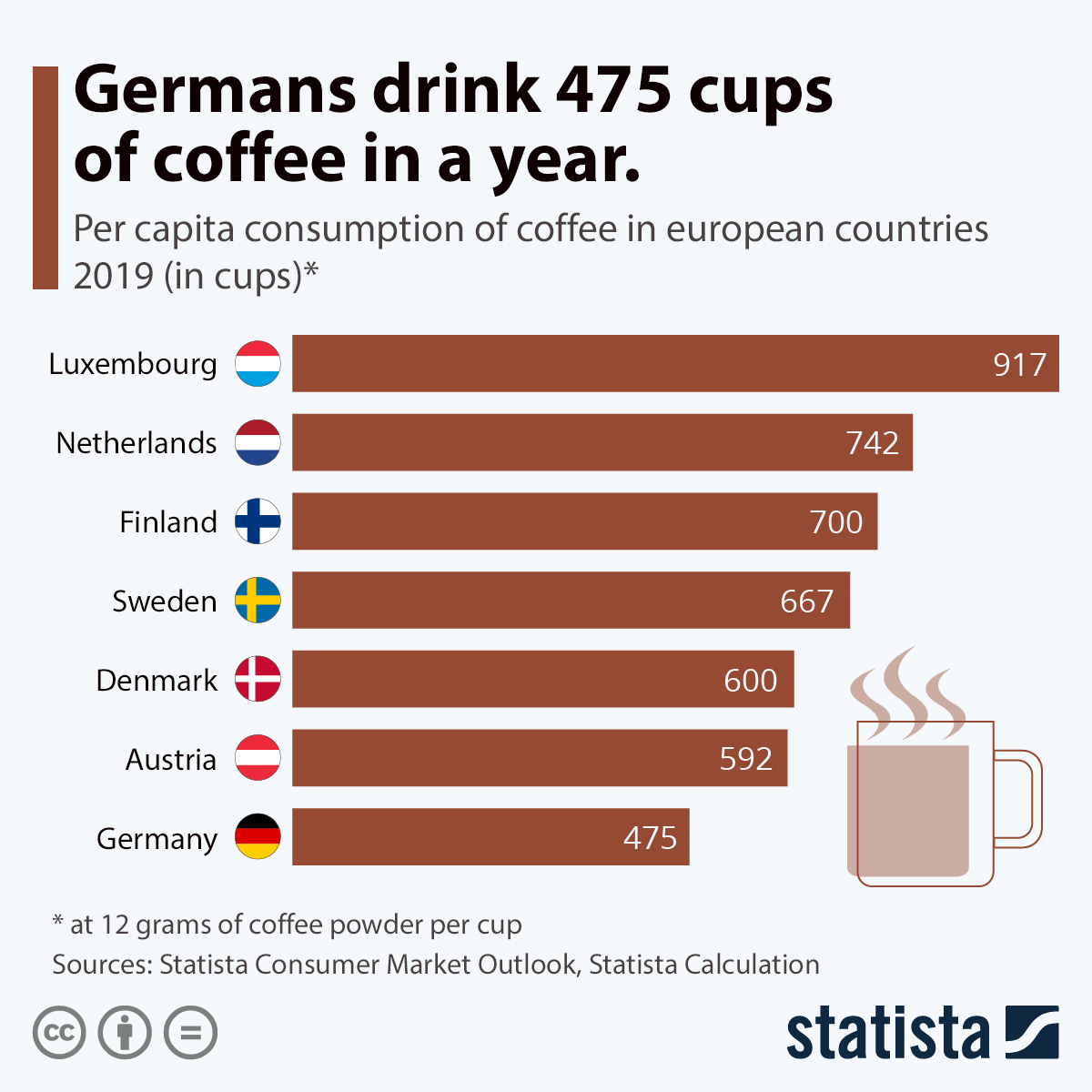
Credit: myhive-offices.com
Different Coffee Types
When you drink coffee, you might wonder how long it takes to feel its effects. Different coffee types can impact this timing. Let’s explore the differences between various coffee types to understand how quickly they kick in.
Espresso Vs. Brewed
Espresso and brewed coffee are popular choices. They differ in preparation, caffeine content, and how quickly you feel their effects.
Espresso is made by forcing hot water through finely-ground coffee beans. This process creates a strong, concentrated coffee. A single shot of espresso contains about 63 mg of caffeine. You might feel its effects within 5-10 minutes.
Brewed coffee involves pouring hot water over ground coffee and letting it steep. This method extracts more caffeine over a longer time. An average cup of brewed coffee has about 95 mg of caffeine. You might start to feel its effects within 10-15 minutes.
| Type | Caffeine Content | Kick-in Time |
|---|---|---|
| Espresso | 63 mg per shot | 5-10 minutes |
| Brewed Coffee | 95 mg per cup | 10-15 minutes |
Both espresso and brewed coffee provide a quick caffeine boost. The difference in their preparation and caffeine content affects how fast you feel the energy.
Instant Coffee
Instant coffee is made from brewed coffee that is dried into a powder. It is convenient and quick to prepare. Simply add hot water, and it’s ready.
Instant coffee usually contains less caffeine compared to espresso and brewed coffee. An average cup of instant coffee has about 30-90 mg of caffeine. You might start to feel its effects within 5-15 minutes. The caffeine content and kick-in time can vary based on the brand and preparation method.
- Convenience: Instant coffee is easy and fast to prepare.
- Caffeine Content: Usually lower than brewed coffee.
- Kick-in Time: Generally 5-15 minutes.
Here’s a quick comparison:
| Type | Caffeine Content | Kick-in Time |
|---|---|---|
| Instant Coffee | 30-90 mg per cup | 5-15 minutes |
Instant coffee offers a quick caffeine fix. Its lower caffeine content can be beneficial if you need a mild energy boost without the jitters.
Impact Of Tolerance
Many people rely on coffee to start their day. But how long does it take for coffee to kick in? The answer can depend on several factors, including tolerance. Tolerance to caffeine can greatly affect how quickly and how intensely the effects of coffee are felt. Let’s explore the impact of tolerance on regular consumers and occasional drinkers.
Regular Consumers
For regular coffee drinkers, tolerance plays a significant role. These individuals consume coffee daily, often multiple times a day. This frequent consumption can lead to increased tolerance, meaning their bodies require more caffeine to achieve the same effects. Here are some key points about regular consumers:
- Adaptation: The body adapts to frequent caffeine intake, reducing its sensitivity.
- Higher Dosage: Regular consumers may need higher doses for the desired effect.
- Delayed Onset: The initial kick might be less noticeable and take longer.
The table below illustrates the difference in caffeine sensitivity between regular consumers and occasional drinkers:
| Category | Caffeine Sensitivity | Onset Time |
|---|---|---|
| Regular Consumers | Low | 30-60 minutes |
| Occasional Drinkers | High | 10-30 minutes |
Regular consumers might experience a more gradual onset of caffeine effects. This can lead to drinking more coffee throughout the day to maintain alertness. Understanding tolerance can help manage coffee intake better and avoid excessive consumption.
Occasional Drinkers
Occasional drinkers have a different experience with coffee. These individuals consume coffee less frequently, perhaps a few times a week or even less. Their lower tolerance means they feel the effects more quickly and intensely. Some important aspects of occasional drinkers include:
- Higher Sensitivity: Their bodies are more responsive to caffeine.
- Quick Onset: Effects are felt faster, often within 10-30 minutes.
- Stronger Impact: Smaller doses can produce significant results.
Occasional drinkers can enjoy the benefits of coffee with lower quantities. The table below compares the typical experience of occasional drinkers with regular consumers:
| Category | Dosage Required | Effect Duration |
|---|---|---|
| Occasional Drinkers | Low | 4-6 hours |
| Regular Consumers | High | 2-4 hours |
For occasional drinkers, a single cup of coffee can be quite potent. They should be mindful of their caffeine intake to avoid jitteriness and insomnia. Understanding tolerance levels can help them enjoy coffee without negative side effects.
Psychological Factors
Ever wondered how long it takes for coffee to kick in? The answer isn’t as simple as you might think. One major factor is psychology. Psychological factors play a significant role in how quickly you feel the effects of coffee. Your mind can influence your body’s response to caffeine in many ways. Let’s explore these factors in more detail.
Expectations
Expectations can have a powerful effect on how quickly you feel the impact of coffee. If you believe that coffee will give you a quick energy boost, your body may respond more rapidly. This phenomenon is known as the placebo effect.
Here are some ways your expectations can affect the kick-in time of coffee:
- Positive Beliefs: If you think coffee will make you alert, you may feel more awake sooner.
- Routine: If you drink coffee every morning, your body may start reacting even before the caffeine kicks in.
- Past Experiences: If you’ve felt energized quickly in the past, you might experience the same effect again.
Studies show that the placebo effect can be quite strong. People who believe they are consuming caffeine often report feeling more alert, even if they were given decaf coffee. This shows how powerful your mind can be in influencing your body’s reaction to coffee.
Mood Influence
Your mood can also impact how quickly coffee affects you. If you are already in a good mood, you might feel the energizing effects of coffee more quickly. On the other hand, if you are stressed or anxious, the caffeine might take longer to kick in.
Here are some mood-related factors to consider:
- Stress Levels: High stress can slow down the absorption of caffeine.
- Anxiety: Anxiety can make you less sensitive to caffeine’s effects.
- Relaxation: Being calm can help your body respond more effectively to caffeine.
Consider the following table that summarizes the mood influence on coffee’s kick-in time:
| Mood State | Effect on Caffeine Kick-in Time |
|---|---|
| Happy | Faster |
| Stressed | Slower |
| Anxious | Delayed |
| Calm | Faster |
Overall, your mood can either speed up or slow down how quickly you feel the effects of coffee. Being aware of your emotional state can help you understand why you might feel the caffeine kick in sooner or later than usual.
Health Considerations
When drinking coffee, understanding how long it takes for the caffeine to kick in is important. Health considerations play a vital role in this. Various factors, including individual sensitivity to caffeine and heart health, can affect how quickly and effectively caffeine works in the body.
Sensitivity To Caffeine
Everyone reacts differently to caffeine. Some people feel the effects within minutes, while others may take longer. Several factors contribute to this:
- Genetics: Some people are genetically predisposed to be more sensitive to caffeine.
- Age: Younger individuals tend to metabolize caffeine faster than older adults.
- Body Weight: Heavier individuals may require more caffeine to feel its effects.
- Tolerance: Regular coffee drinkers often develop a tolerance, requiring more caffeine to achieve the same effect.
Symptoms of caffeine sensitivity can vary. Those highly sensitive may experience:
- Increased heart rate
- Jitters
- Anxiety
- Insomnia
If you suspect you are highly sensitive to caffeine, consider the following:
- Limit your intake to one cup per day.
- Avoid coffee late in the day to prevent sleep disturbances.
- Opt for decaffeinated coffee or tea.
Understanding your body’s reaction to caffeine can help manage consumption effectively.
Heart Health
Caffeine impacts the heart. For those with heart conditions, monitoring caffeine intake is crucial. Effects on heart health include:
- Increased heart rate: Caffeine stimulates the heart, causing a faster heartbeat.
- Blood pressure: It can temporarily raise blood pressure.
- Arrhythmias: In some cases, it can lead to irregular heartbeats.
Research shows moderate coffee consumption is generally safe for heart health. Benefits may include:
- Reduced risk of heart disease
- Lower likelihood of stroke
- Improved blood vessel function
For those with existing heart conditions:
- Consult a healthcare provider about safe caffeine levels.
- Monitor heart rate and blood pressure after consumption.
- Consider alternatives like herbal tea or decaf coffee.
Balancing caffeine intake is key to maintaining heart health. Understanding how caffeine affects your heart can help make informed choices.
Maximizing Caffeine Effects
Coffee is a beloved beverage for many, offering a much-needed energy boost. But how long does it take for coffee to kick in? Understanding the timing can help you maximize its effects. Below, we’ll explore how to optimize caffeine intake and hydration tips to enhance the benefits of coffee.
Timing Your Intake
Timing your coffee intake is crucial for maximizing its effects. Caffeine typically starts to work within 15 to 30 minutes after consumption. However, the peak level in your bloodstream is reached within 45 minutes to an hour. To make the most of your coffee, consider the following tips:
- Morning Routine: Drink your coffee 30 minutes before starting your day. This allows caffeine to be in full effect by the time you need it most.
- Pre-Workout: Consume coffee about 45 minutes before exercise. This ensures maximum energy and focus during your workout.
- Avoid Late Intake: Drinking coffee late in the day can disrupt sleep. Try to avoid caffeine at least six hours before bedtime.
Here’s a simple table showing the caffeine kick-in times:
| Activity | Ideal Coffee Intake Time | Kick-in Time |
|---|---|---|
| Morning Start | 30 minutes before | 15-30 minutes |
| Workout | 45 minutes before | 45 minutes – 1 hour |
| Relaxing Evening | Avoid 6 hours before | Disrupt sleep |
Hydration Tips
Hydration plays a key role in maximizing caffeine effects. Coffee is a diuretic, which means it can lead to dehydration if not balanced with water intake. Follow these hydration tips to ensure you’re getting the most out of your coffee:
- Drink Water Before Coffee: Start your day with a glass of water. This helps balance the diuretic effect of coffee.
- Alternate Water and Coffee: For every cup of coffee, drink a glass of water. This keeps you hydrated and helps your body process caffeine better.
- Monitor Urine Color: Light yellow urine indicates proper hydration. Dark yellow suggests you need more water.
Here’s a hydration strategy table:
| Action | Effect |
|---|---|
| Drink Water Before Coffee | Balances diuretic effect |
| Alternate Water and Coffee | Maintains hydration |
| Monitor Urine Color | Ensures proper hydration |
By incorporating these hydration tips, you can enjoy the stimulating effects of coffee without the risk of dehydration.

Credit: cafely.com
Frequently Asked Questions
What Is The 90 Minute Rule For Coffee?
The 90-minute rule for coffee suggests waiting 90 minutes after waking to drink coffee. This timing aligns with your natural cortisol levels.
How Long Does It Take For Coffee To Hit The System?
Coffee typically takes about 10 minutes to start affecting your system. Maximum impact is usually felt within 30 to 60 minutes.
How Long Does 1 Coffee Keep You Awake?
A cup of coffee can keep you awake for about 4 to 6 hours. The exact duration varies per individual.
How Quickly Does Coffee Work?
Coffee typically works within 15 to 30 minutes after consumption. The caffeine peaks in your bloodstream in about 1 hour.
Conclusion
Coffee usually kicks in within 15 to 45 minutes. It varies per person. Factors like metabolism and tolerance play a role. Savor your coffee mindfully. Enjoy the boost it offers. Stay aware of your intake. Balance is key for the best results.
Happy sipping!
